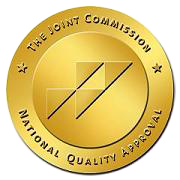7 Types of Eating Disorders, Explained
Clinical Director Landry Yarborough explains different types of eating disorders.
Read the Full Article from InStyle
Eating disorders can be difficult to understand unless you've been through one. While the general public is aware of anorexia and bulimia, the awareness often stops there. However, there are several other types of eating disorders — including some newer ones you likely haven't even heard of yet. Diagnosis for a particular eating disorder can get cloudy because of overlapping symptoms, and it's also possible to move between diagnoses at different points in your life. "Eating disorders tend to morph and change over time, especially if the person does not receive treatment," explains Landry Weatherston-Yarborough, LPC, CEDS, NCC, an eating disorder expert at Eating Recovery Center.
If you're experiencing what seems like eating disorder symptoms (some key ones include extreme anxiety around eating, avoidance or restriction of certain foods, or binge eating), know that it's not your fault. In fact, in many cases, it could be in your genes: "about 50% of the risk is attributable to genetic factors," says Weatherston-Yarborough. "Eating disorders are actually one of the most heritable mental health disorders." Other risk factors include a history of trauma and other mental health conditions. Anxiety, loneliness, anger, depression, feeling a lack of control in life, and low self-esteem are also likely to be red flags for eating disorders, adds Sanam Hafeez, PsyD, a New York City-based neuropsychologist and director of Comprehend the Mind. And with the recent resurfacing of these exact feelings for so many people globally, disordered eating behaviors have skyrocketed during the pandemic. vvvv
Read More
If you're experiencing what seems like eating disorder symptoms (some key ones include extreme anxiety around eating, avoidance or restriction of certain foods, or binge eating), know that it's not your fault. In fact, in many cases, it could be in your genes: "about 50% of the risk is attributable to genetic factors," says Weatherston-Yarborough. "Eating disorders are actually one of the most heritable mental health disorders." Other risk factors include a history of trauma and other mental health conditions. Anxiety, loneliness, anger, depression, feeling a lack of control in life, and low self-esteem are also likely to be red flags for eating disorders, adds Sanam Hafeez, PsyD, a New York City-based neuropsychologist and director of Comprehend the Mind. And with the recent resurfacing of these exact feelings for so many people globally, disordered eating behaviors have skyrocketed during the pandemic. vvvv
